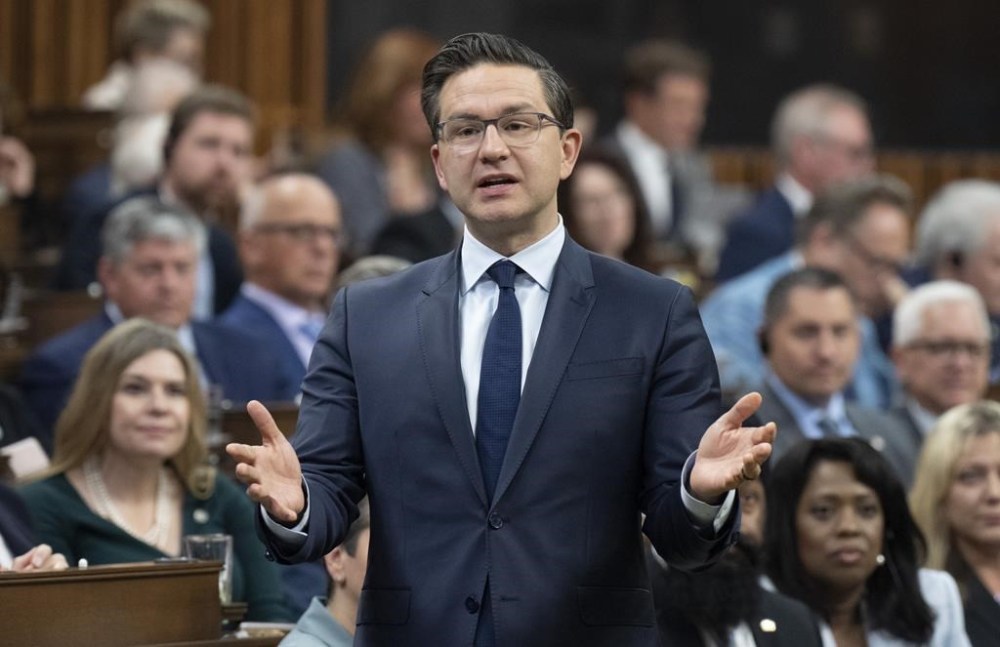Tories, Bloc discuss next steps on foreign interference as NDP pitches its own idea
Advertisement
Read this article for free:
or
Already have an account? Log in here »
We need your support!
Local journalism needs your support!
As we navigate through unprecedented times, our journalists are working harder than ever to bring you the latest local updates to keep you safe and informed.
Now, more than ever, we need your support.
Starting at $15.99 plus taxes every four weeks you can access your Brandon Sun online and full access to all content as it appears on our website.
Subscribe Nowor call circulation directly at (204) 727-0527.
Your pledge helps to ensure we provide the news that matters most to your community!
To continue reading, please subscribe:
Add Brandon Sun access to your Free Press subscription for only an additional
$1 for the first 4 weeks*
*Your next subscription payment will increase by $1.00 and you will be charged $20.00 plus GST for four weeks. After four weeks, your payment will increase to $24.00 plus GST every four weeks.
Read unlimited articles for free today:
or
Already have an account? Log in here »
Hey there, time traveller!
This article was published 13/06/2023 (846 days ago), so information in it may no longer be current.
OTTAWA – Two opposition party leaders have now met to discuss the next steps for how the Liberal government should tackle the issue of foreign interference.
A spokesman for Conservative Leader Pierre Poilievre confirmed he met Tuesday with Bloc Québécois Leader Yves-Francois Blanchet.A spokesperson for the Bloc said it was Poilievre’s office that reached out for the meeting, the details of which have not been divulged.
Their meeting comes after former governor general David Johnston informed the prime minister last Friday he was resigning as special rapporteur on the matter, citing a hyper-partisan environment that was eroding trust in the process.

Johnston presented a report last month recommending against a public inquiry, citing the difficulty of having one when national security information must be kept secret.
He did, however, say a public process of some kind was necessary and had planned to hold a series of hearings over the summer to further investigate what foreign interference looks like.
Johnston’s resignation followed weeks of intense scrutiny from opposition MPs and calls for him to step aside.
During that time, Prime Minister Justin Trudeau deferred to his special rapporteur on what should be done about allegations that China meddled in the 2019 and 2021 federal elections.
Now the ball is back in the Liberal government’s court.
Trudeau told the House of Commons on Tuesday that the Bloc has submitted a list of people it thinks could lead an inquiry.
Among the names on the list supplied by the Bloc was former Supreme Court of Canada justice Louise Arbour, who was recently tasked with reviewing sexual misconduct in the Canadian military.
Speaking to reporters Tuesday, Trudeau said foreign interference is an issue that must be taken seriously, suggesting that opposition MPs have not done so to date.
“If we can move past the toxicity and partisanship that has characterized the approach by many parties and actually take this seriously, work together and figure out a way to highlight everything that is being done and what next steps can be taken, it’ll be a good thing.”
Meanwhile, NDP Leader Jagmeet Singh said he thinks a committee should be struck to decide who could lead a potential inquiry.
He added the party has laid out the criteria for who it wants to lead a potential public inquiry. The first requirement is they should be a sitting or retired judge. It should also be “someone who hasn’t donated to a political party in a number of years,” Singh said.
He said potential candidates should have no affiliation to the Pierre Elliott Trudeau Foundation, a scholarship organization named after the prime minister’s late father.
Johnston’s past involvement with the foundation, as well as his relationship with the Trudeau family, became a focal point for the opposition — especially for Poilievre’s Conservatives.
Intergovernmental Affairs Minister Dominic LeBlanc told reporters the government remains open to an inquiry, but it wants to hear from opposition parties on who could lead one, what the timeline should be and how it would deal with secret information.
LeBlanc called the Bloc’s list “a positive step forward,” saying he hopes that by the end of next week, when Parliament is scheduled to break for summer, the government can announce what that public process will look like.
“A public inquiry in a highly sensitive protected area of national security is different than another public inquiry,” LeBlanc told reporters.
“The terms of reference are important, the kind of persons or person who would lead such an effort are also very important.”
This report by The Canadian Press was first published June 13, 2023.
— With files from Nojoud Al Mallees and Michel Saba.
